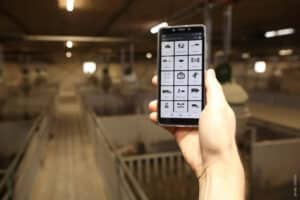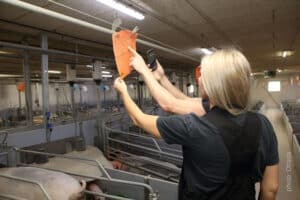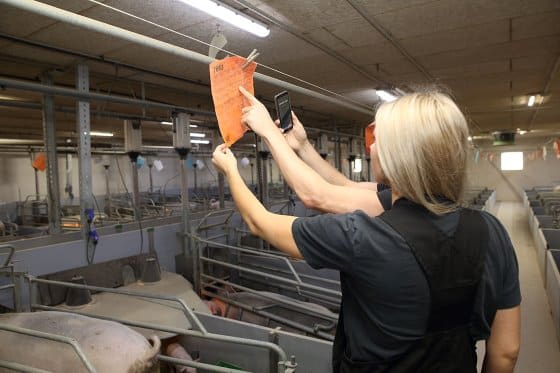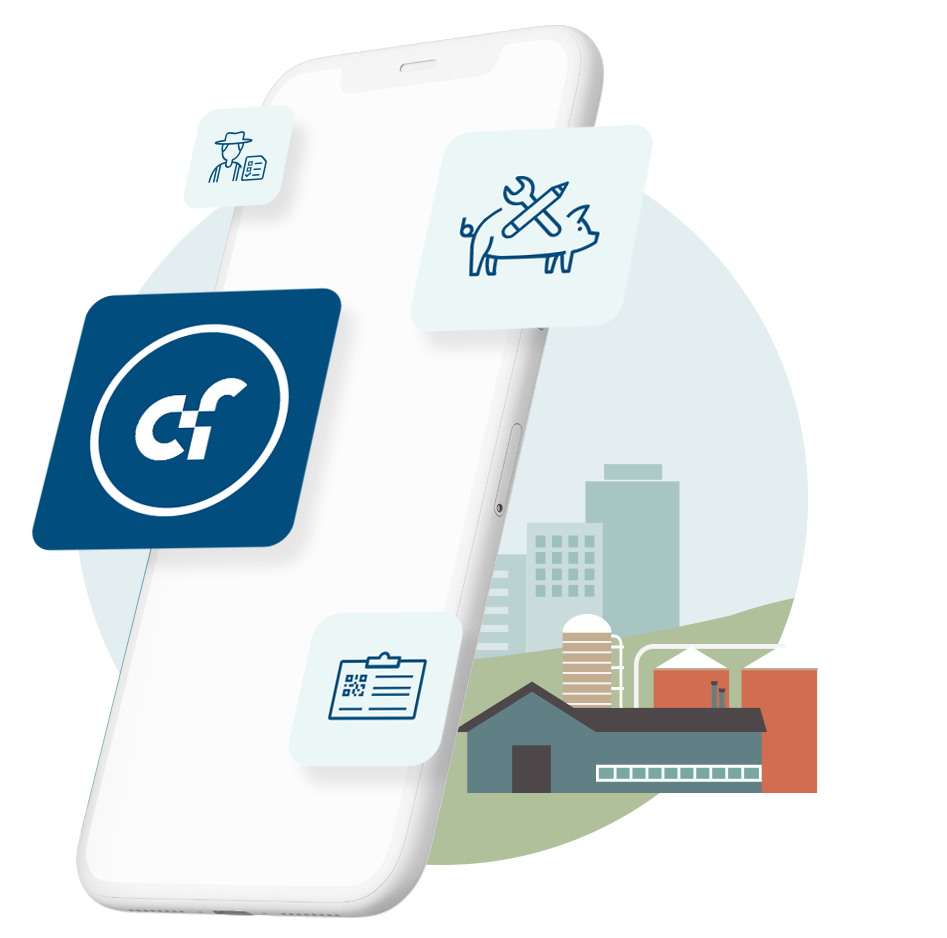Our food system is facing a deep transformation – the pork industry is no exception. Corona, product recalls, and African Swine Fever are starting to influence consumer choices. Being able to trace a product back to its origin is becoming a growing trend with consumers and legislators.
Consumer trends show an increase in awareness of safety, food origin, and quality. Information about animal welfare and sustainability of animal production is becoming a subject of significant interest for legislators, customers, and value chain players themselves.
The question is: how to address these needs? On the one hand, transparency and traceability of meat products are required, on the other, supply chains are very complex and difficult to follow. Most consumers would be surprised to learn that for a single sausage there can be more than 15,000 production events from crop harvesting to packaging. To provide information related to food origin, a system for collecting, connecting, and providing data to trace all stages of production and processing is necessary.
A “pig passport” for the industry
Cloudfarms has developed a full Traceability Platform, specifically for the pork supply chain, to provide transparency to track the full pork supply chain including crop harvesting and storage, feed mill, pig production, slaughter, deboning, and meat processing.
The solution provides information about the origin and preparation of feed, such as: from which fields and which external suppliers grain and other feed ingredients are coming from, and whether the feed contains genetically modified plants. It allows you to see the medicine usage, both on individual animals and animal groups so that it can be credibly demonstrated whether the animals have been raised without antibiotics.
In addition, the traceability solution allows tracing of where the animals were born and raised. Tracking of individual slaughter pigs is supported, so the slaughterhouse can get a “passport” together with each delivered pig. The slaughter data (lean meat, carcass weight, illnesses, sex, payment, etc.) can be delivered back to the farm for future optimisation purposes. And in case of a quality issue, the solution enables to pinpoint the source of a problem faster and allows identification of products which need to be recalled.
Cloudfarms’ Traceability Platform is built so that it can connect with GS1 standards – the global common language for traceability solutions. It is expected that large solutions will become something like “traceability highways” that industry-specific solutions will be able to connect with.

Goodvalley’s field-to-fork-traceability in practice
Goodvalley is an international producer of high-quality pork products operating in Poland, Ukraine, and Russia based on Danish production standards. The company is focusing on a unique and sustainable approach to farming that has a minimal environmental impact. Goodvalley is certified as a carbon-neutral company and is up to 73 % self-sufficient.
Goodvalley’s products are fully traceable back to the farm and barn where they were produced. From the food production facility, they can trace each pig back to its finisher-farm, weaner-farm, and sow-farm, as well as what feed it has consumed all the way. This is possible also thanks to Cloudfarms’s Pig Production Management System and the Traceability Platform.
“To share information about every step of the production process, we added a QR-code on our product packaging. Since early 2021 customers can scan all Goodvalley products and see the process from the first grain for feed to the last slice of ham,” says Holger Axelgaard, CIO of Goodvalley.
Multiple cases and benefits of traceability
From tracing products in seconds and gaining full visibility of the supply chain to getting data-driven insights to optimise supply chain inefficiencies, there are many benefits of a traceability solution for every stakeholder group.
Integrators, processors, retailers, pig producers, or feed companies can all use data to prove quality and high standards and create transparency for their products or value chain partners. Traceability platform can be used to adhere to regulations and provide data for audits as all information required by law is already available in the system.
With a traceability solution, data is digitised into one platform, eliminating the use of paper or Excel, which saves a lot of time. Standardising processes and digitalising supply chains enable rapid data analysis with assimilable results – leading to better decision-making and greater efficiency.
A traceability platform has all the data to provide a unique overall look on the supply chain of the entire company for teams responsible for transport and logistics. Getting data-driven insights (e.g., how much time animals and goods spend on transport) helps optimise supply chain and logistics inefficiencies.
Another advantage of a traceability solution is the ability to identify the source of contamination based on common steps in the production chain. In the event of a crisis, all steps connected to a specific product batch can be identified in a matter of seconds. That means faster and precise recall of products when needed and the capability of providing information to authorities, consumers, suppliers, and NGOs.
Traceability is also connected to ethical and environmental topics. A great example of this is that traceability solution enables to prove easily that animals were treated fairly or to calculate CO2 footprint better.

Sharing knowledge and building customer trust
Finally, there is an increasing demand for more sustainable products and information about their origin. Having a QR code on product packaging and sharing information about sources, contents, processes, sustainability, animal and worker welfare, builds customers’ trust and at the same time creates brand loyalty.


